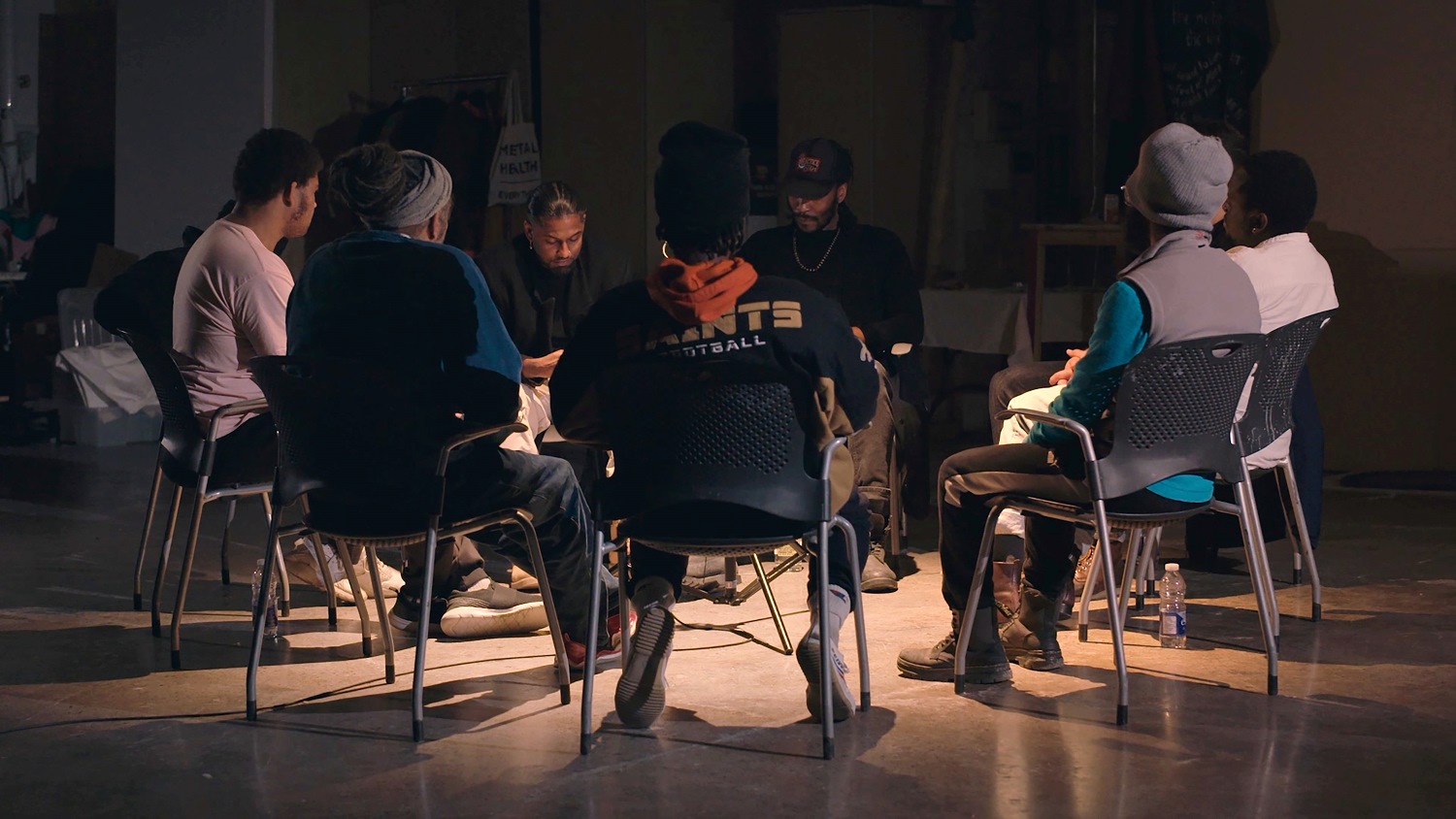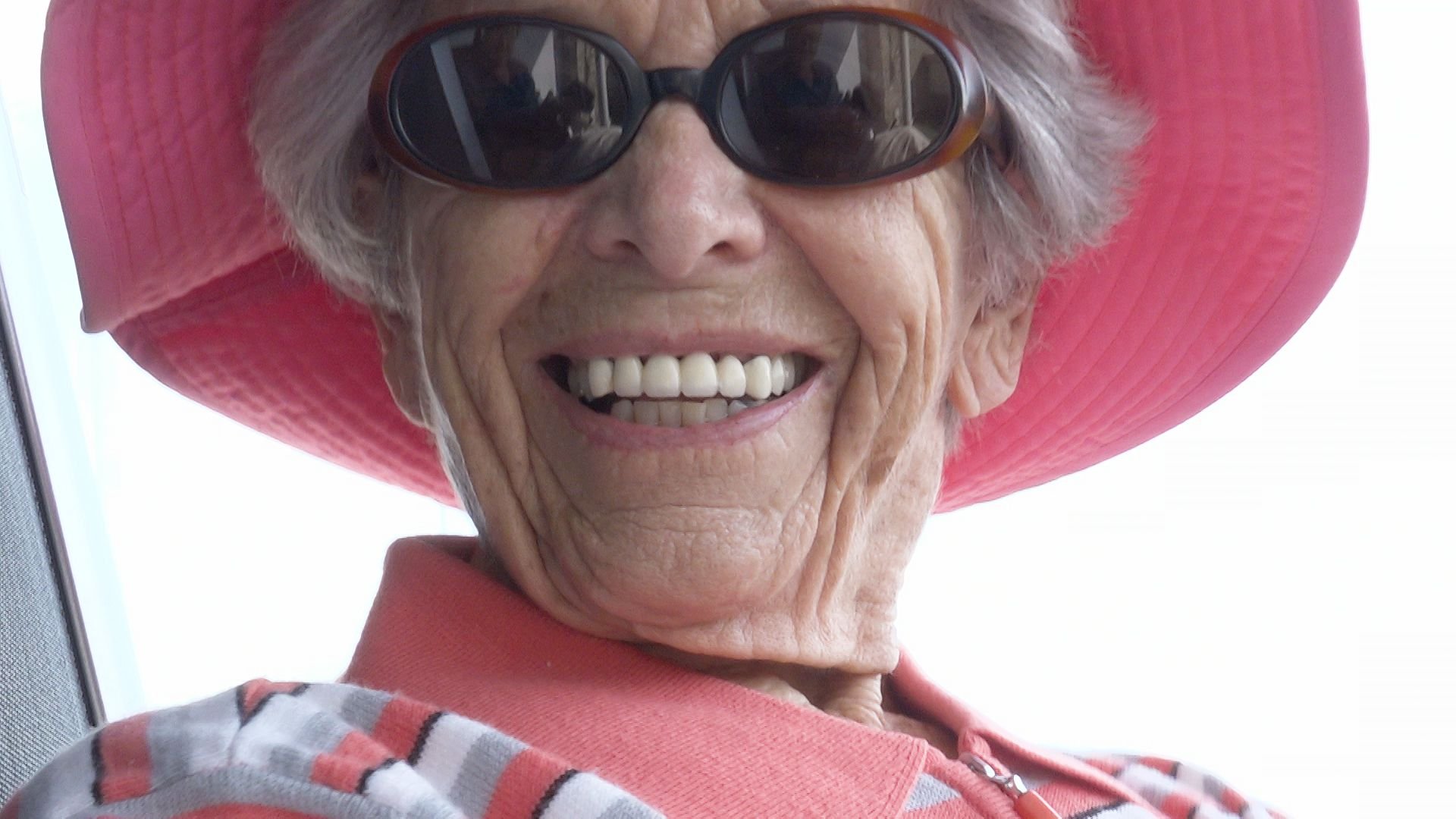After navigating her own experiences in the wake of 2017’s #MeToo reckoning, filmmaker Chrisann Hessing’s thoughts turned to the men in her life. Fruitful conversations were being had with the women in her life, but notably, Hessing realised she wasn’t engaging with her male family members, friends, and colleagues in the same way.
“Where’s the dialogue? Where’s the space? What are they going through?” she wondered. “Is there a downside to being a man?”
In a rather serendipitous fashion, Hessing soon after crossed paths with the Good Guise, a Toronto-based collective made up of racialized men and non-binary persons. Motivated to create a safe space for thoughts and concerns to be shared without judgment, the Good Guise advocate for the use of artistic expression as a way for their members to express themselves and to create meaningful steps forward within their communities.
From this introduction, Hessing and her producing partner Tanya Hoshi developed a documentary about the group, We Will Be Brave. The film not only answered Hessing’s questions regarding the male perspective, but it has also become itself a form of community outreach for the team. “It’s been four years working with the Good Guise and supporting their work, both behind the camera and in the community,” Hessing shares. “It feels really amazing. I’m very curious and excited to see just what kind of strides we can make for their cause with this film.”
POV spoke with the director ahead of the film’s Toronto premiere at the Toronto Reel Asian International Film Festival where We Will Be Brave won the Blue Ant Media Audience Choice Feature Film Award.
POV: Rachel Ho
CH: Chrisann Hessing
This interview has been edited for brevity and clarity.
POV: How did you get in touch with the Good Guise?
CH: I was at a community event [in 2019] that I had been doing some mentoring for and they were screening one of my short films. In advance of that, they had a presentation by a local collective, the Good Guise. I remember seeing them perform on stage — it was my first time having the visual and the experience of [seeing] a racialized man on a platform, talking about his emotions. It was extremely vulnerable and inviting at the same time. [The presentation] threw me because I realized I’ve actually not seen this before. It was quite moving.
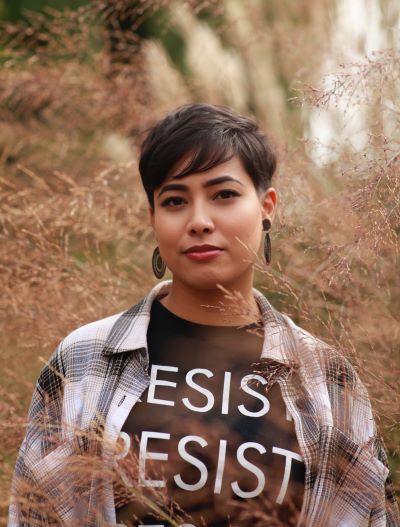
I was very curious what this collective is about. I ended up reaching out to Julian [Diego], who’s one of the founding members [and] we had coffee one day. He invited me to come to a community forum that they were doing where I got to meet the rest of the collective.
POV: When you met Julian for coffee, did you already have it in your mind that this might be a good idea for a film?
CH: I knew that this could be a good film idea. I was also in between films [and I knew] the story bug was going to come for me. I was feeling very curious and inspired. At the time, I was like, “This could be a very interesting story, now let me go in and see who are the people behind the cause.” Because it’s a character-driven film, we didn’t want to go the academic or traditional route of how we talk about masculinity. We wanted it to be rooted in personal stories, because that’s how people can build empathy — by seeing themselves reflected.
It started being about the three co-founders, and then as I started meeting more members of the collective, I thought, “We have to expand this and include more perspectives.” There are members of the Good Guise outside of who we saw in the film, but those [the ones shown in the film] are the core team.
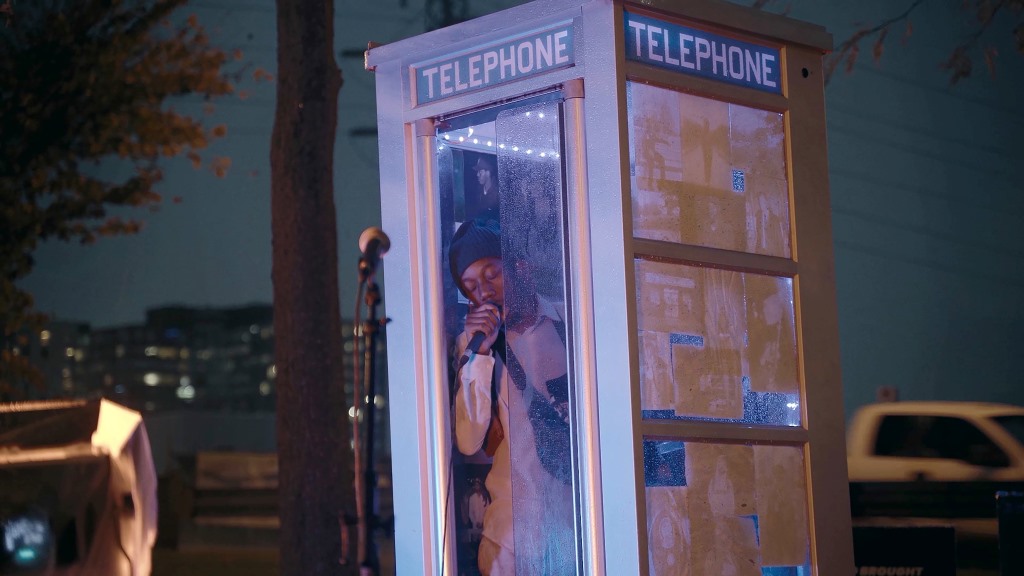
POV: As a filmmaker, when you’re just living your life and meeting new people and experiencing new things, do you find it difficult to turn your filmmaking brain off, or are you always in filmmaker mode?
CH: It’s a double-edged sword, that’s for sure. One of my strengths is being able to recognize potential and it’s a part of the process that excites me. But it’s also not one of those things that I can turn off. I always keep a log of things that have piqued my interest over time, and when I have time, I dig into that a bit further. But typically, looking back on my work, the themes and the topics that I’ve covered have come from my own inner reflection and something that I was grappling with.
I want to be mindful in sharing how much working on this topic and with the Good Guise has helped me come to terms with my own relationship to gender and my own queerness as a woman of colour. I was certainly not expecting to discover [that] about myself in a way that was so profound, but it was a reflection in many ways. The questions that the [Good Guise] were asking were questions I asked myself.
POV: I’d love to hear more about this. Was there was anything specific working on this film that prompted the self-reflection?
CH: If I were to tie it to a time that elevated my curiosity for this topic, it was following the #MeToo movement. I was having so many conversations with other women about my experiences as a woman that, up until the #MeToo movement, felt like experiences I was not allowed to share or were too taboo to share — something you had to suffer in silence. I was having all these conversations and realizing the healing that I was getting from it was unexpected, but I noticed that I wasn’t having the same conversations among the men in my life.
When I started working on this film, I didn’t think there was a downside [to being a man]. They seem to just have all of it figured out; they’re already on this path that gives them more opportunity by default of their gender. Of course, I was wrong in that bias. I learned very quickly that in fact, men have arguably more limitations than women because they’re not even able to express how they feel, because they’re conditioned by society that their feelings don’t matter or are not valid.
To have the guys welcome me in, bring me along, and have that dialogue with me every step of the way…it was nothing short of a transformative experience.
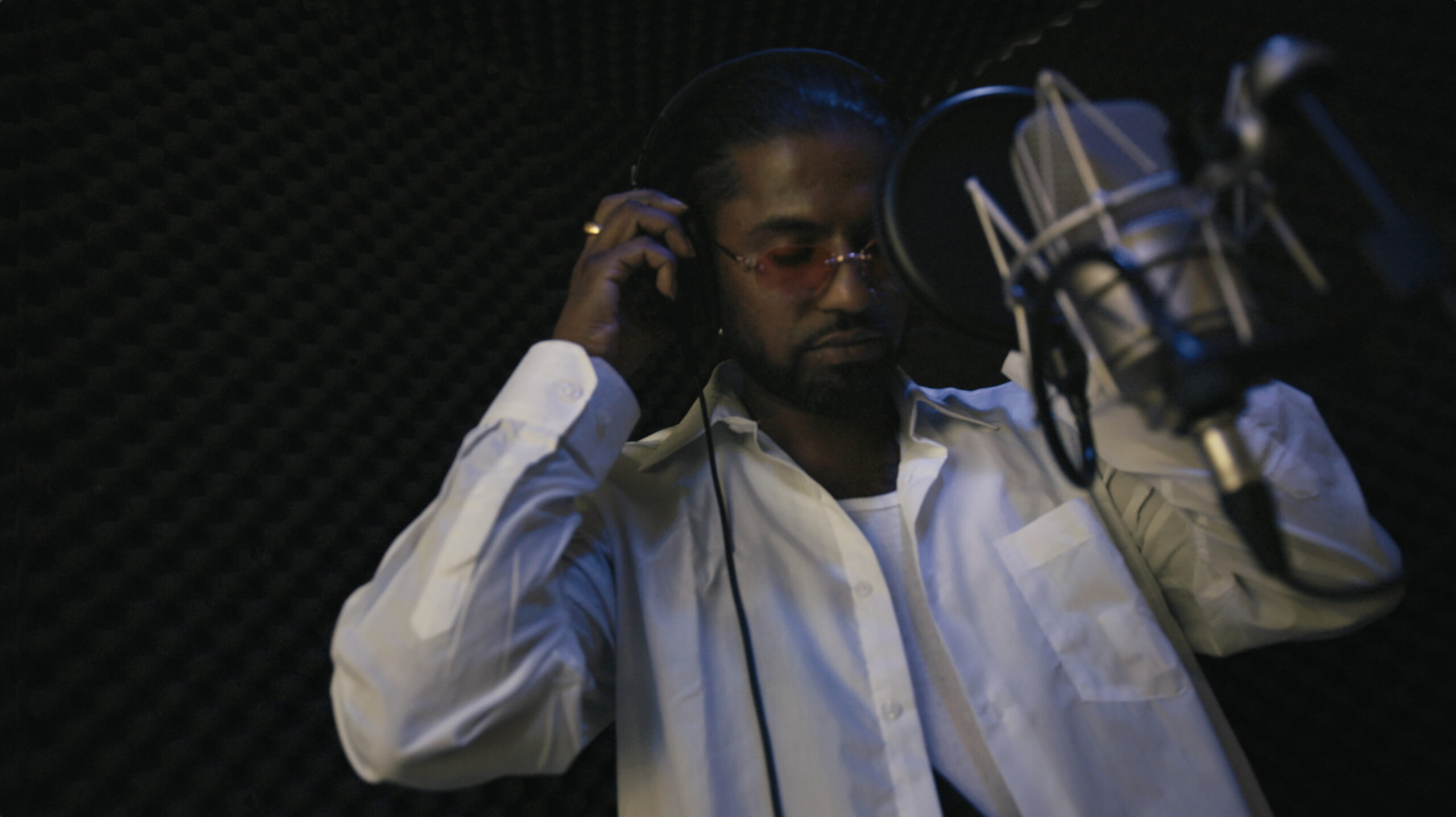
POV: I have to admit that following the #MeToo movement, I’ve developed a bit of an allergy to the phrase “toxic masculinity.” It’s become a bit of a buzz word and a loaded phrase now. Was there a concern of over-using that in the film at the risk of it varnishing over the actual message you’re trying to deliver?
CH: Both of us — the Good Guise just as much as myself — wanted to stay away from that. In my early days, I was pitching using [“toxic masculinity”] and something never felt quite right. But at the same time, the number of times when I’ve talked to people about it, they don’t understand what it’s about. In some of these communities, it’s not even a conversation that’s being had. It was interesting trying to figure out what will they connect to. What’s a reference that can make people understand?
From those early days of working on the film, pre-pandemic to now, I don’t really use the term “toxic masculinity” anymore. Because of what’s happened since #MeToo [and] the rise of cancel culture, it can have this varnish on what we’re trying to do. The guys have always suggested we use “healthy masculinity” instead. That’s why the tone was really important to me. I wanted to show the realities, the truths, and the burdens that they have to face as racialized men trying to do this work.
It’s my style to show and celebrate the positive elements of what groundbreaking community work can look like. And in this case, it was that unintentional brotherhood that formed between them. I was like, “Do these guys know that they’re becoming like tight friends?” It was such a beautiful thing to watch unfold.
POV: It was really funny in the film hearing them say they’re not really friends, they just know each other through the Good Guise. I’d been watching them for an hour, how are they not friends? They’re definitely friends.
CH: Yeah, I know. [Laughs.] I’m like, is that just how male friendships are? I would call someone my BFF probably way too soon by their standards. It’s so funny.
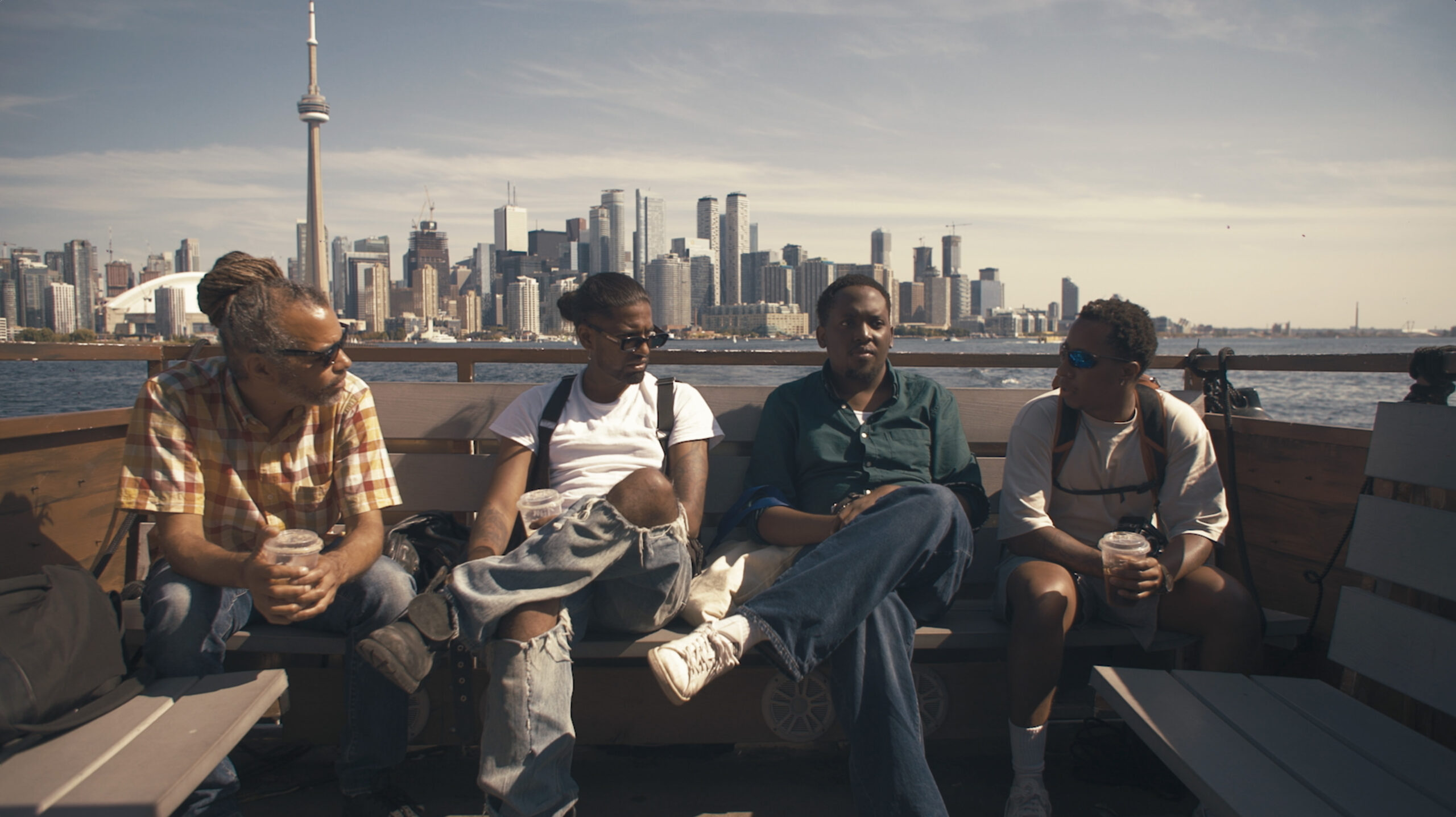
POV:. Our perspectives as women are clearly different, because our experiences are different. We look at them and think, of course you guys are friends, relax. What did you find that being a woman and having that different perspective and experience lent to a film effectively about men?
CH: It really helped me read between the lines about what was really going on. There were so many connections that I was making that I don’t know if a man would be seeing. Not to say that this is a particularly feminine trait — I knew going in that I wanted to showcase the Good Guise through a lens of tenderness and softness. I was always curious how some of the scenes, their presence, and the way they think they’re presenting will come across knowing that I’m going to be showing it through this very tender, soft POV — almost a gentle perspective where I let them do their thing [and] let it unfold.
If I were to boil down the essence of the film, it’s not about gender. It’s about humanity. I think in a time like now, when we’re so incredibly polarized and we can’t see past labels, nationalities, ethnicities, or socio-economic status, a film like this, I hope, encourages viewers to think that all those things are simply labels and there is a human underneath all of that. If we just take the time to listen, take our biases and prejudice and put that aside, there is so much more that we will find we have in common with each other.




